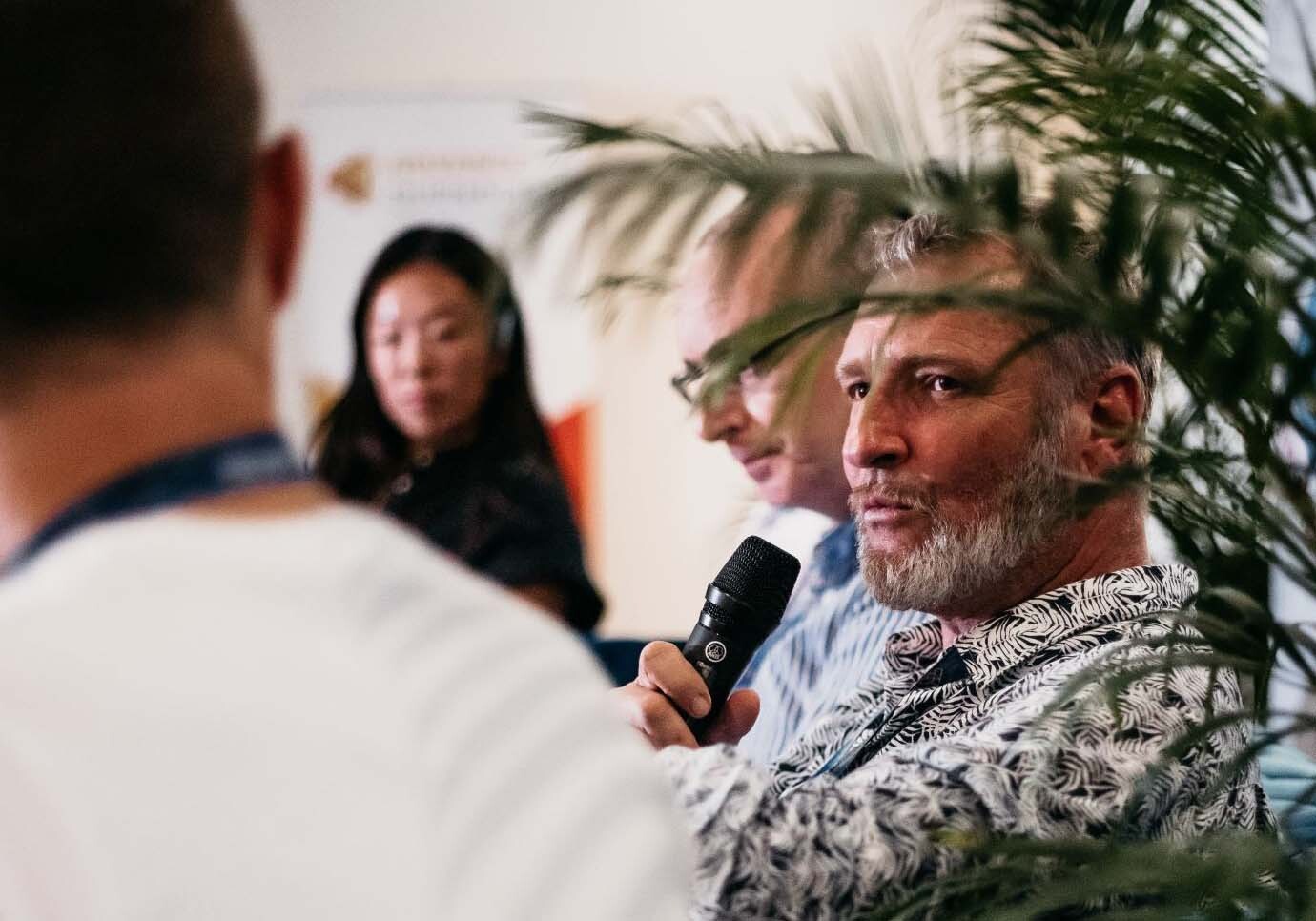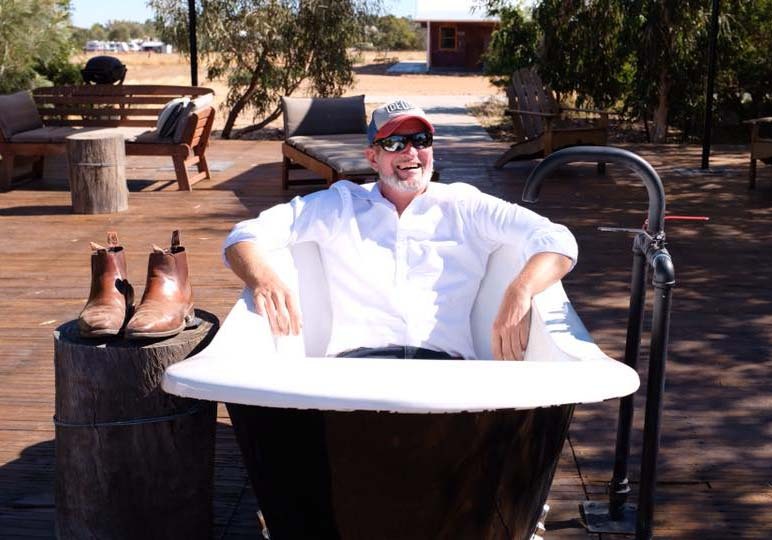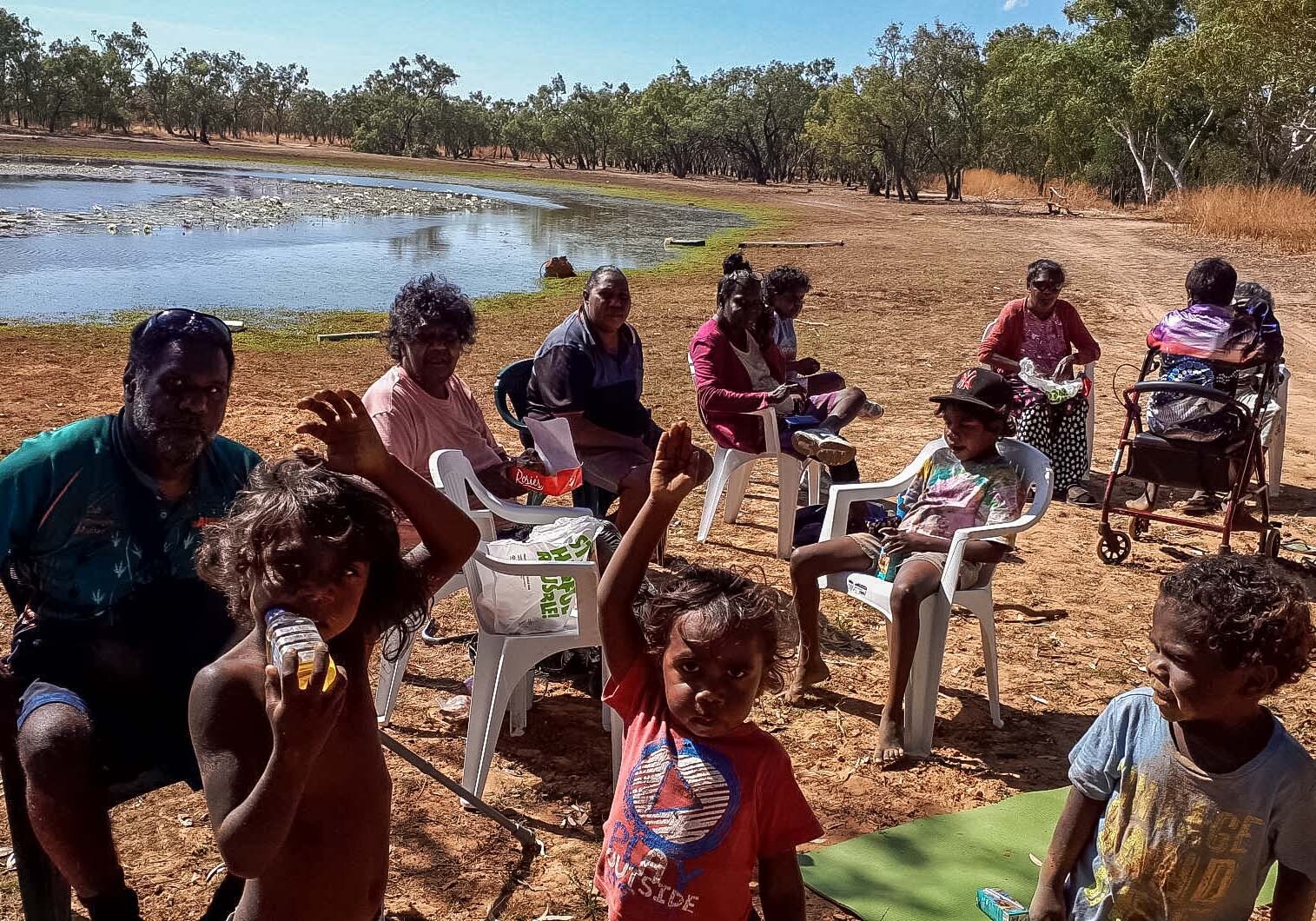This site may not work properly using older versions of Edge and Internet Explorer. You should upgrade your browser to the latest Chrome, Firefox, Edge, Safari, or any other modern browser of your choice. Click here for more information.
Your Stories
This is where we tell your stories, cover topical issues and promote meaningful initiatives.
Fellow in Focus: Working for a fair and equitable society
Dr Scott Davis, a Fellow of CRANAplus, has worked in remote health for 30 years across the north of Australia and internationally, always with an eye on creating opportunities to support the training, education and supervision to grow the next generation of health professionals.
A few years ago Scott took the career decision to move upstream, as he puts it, from service delivery, programme design and policy develop-ment in the public health and primary health care arena, to working directly with rural and remote communities and traditional landowners to address the social determinants of health.
He’s proud of the projects he’s been involved in and loves his work. At the same time, his ultimate objective is to make himself redundant so that communities and services are sustainable and resilient. Here’s his story.
11 years ago, Scott returned to Cairns in Far North Queensland to be closer to his ageing parents.
“I have to say I have fallen in love with the place all over again,” he says. “I do think going away and coming back allows you to get perspective. Rural and country towns work on relationships and reciprocity.
“Building long-term relationships allows a community to understand who you are and how you contribute to that community, and the values that underpin what you do.”
“One of the things I think is really important for anyone who works in regional, rural and remote communities is understanding and respecting the communities and the people you serve.
“Investing in building this relationship and understanding of the community is a really important part of my professional journey.
“It’s important to spend time in the communities you serve, good to be reminded of the reason why you do the work that you do.
“Sometimes it might seem that the task is enormous, but over time with sustained commitment you can see the differences in the lives of people.”
Scott has been a director for four years with My Pathway, a socio-economic development company that works in partnership with regional, rural and remote communities.
“One project I am particularly proud of has been setting up an Indigenous-led remote NDIS programme in a remote community in Queensland where all the staff, apart from two, are local people from the community who are providing care and support for people with disabilities in the community.
“This programme has so many benefits. It gives local people employment and the opportunity to gain new skills and career prospects. It is being developed and co-designed in a way that is culturally appropriate, safe and sustainable and is done in partnership with local organisations – reducing the reliance on people flying in and out to deliver care.
“The exciting thing is you see people in the community getting care for the first time, provided by members of their own community. This is helping to rebuild and strengthen bonds and it’s all achieved within national guidelines.”
Scott is also working with traditional owner groups to look at where there are opportunities to build local workforce and enable economic self determination in their communities.
“There’s a range of social issues that we know are important for good health outcomes – a strong community, supportive families, healthy environment, and access to education and employment opportunities: all are determinants of good health in a community.
“The journey to self determination is one I am committed to,” Scott says. “Everybody has a right and ability to make decisions in their own interests and those of their community.
“I would argue many of our Indigenous leaders today have come through that process. They have triumphed over adversity to excel. There are many more who maybe don’t yet have the same opportunities.
“What I am talking about is having a structured, systematic approach which allows individuals and communities to move forward more quickly than in the past.
“My role in all of this is as the person behind the scenes, helping people to build skills and capacity and allowing them to go along their own journey, so people have the best opportunity for employment and to be leaders in their communities.
“People grow into their roles, and it is naïve to expect anybody to be an expert at the end of a training programme.”
“It’s always a learning journey. Mistakes are not the end point in my mind. They are an opportunity to learn.”
Scott believes valuing knowledge in all its forms is a conversation that is starting to emerge, and that supporting communities to build on that knowledge creates a strengths-based approach to social and economic development.
“In health there’s a move towards recognising the important role of generalists with a well-rounded skill base with perhaps advanced skills in a particular context,” Scott says.
“You certainly don’t want people making clinical decisions outside their range of scope. Safety and quality is crucial, but we have
to be careful of not ignoring the benefits of multidisciplinary roles.
“It’s important to look at the assets in regional, rural and Indigenous communities, not the deficits. There is a danger of seeing these communities as lacking. I would argue that there are many assets within these communities.
“It’s also important to provide a supportive environment for people to return to do work in a traditional context and value that work. It plays a strong role in building a sense of identity and strengthening culture.
“In addition, we need to recognise that culture and communities are constantly changing. There seems to be a view here in Australia that they are static. They’re not. Within the community there is always an element of flux.”
“The resilience of people in rural and remote communities is impressive. They cope with all manner of obstacles, lack of resources and the disadvantages of distance.”
“At the same time, we must ensure we are not forgetting those who need support, the most disadvantaged within any community,” he says.
“I’m talking about all groups, not just Indigenous people. People with disabilities, the LGBTIQ community and so on. It is important we don’t leave people behind, that we facilitate and support self-determination and create an environment which supports it to happen.
“I believe that all of us, no matter what role we play, should be thinking about how we build and support the capacity of others.
“We have an obligation to engage and support the most disadvantaged. That’s the only way to have an equitable and fair society.”
Hear from CRANAplus Fellows Toni Dowd, Sophie Heathcote and Sharon Weymouth.


